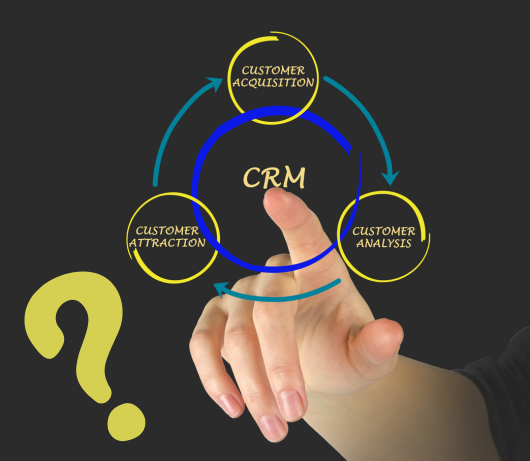HubSpot vs. Salesforce: Choosing Your Perfect Business Platform
Selecting a CRM and business management platform is one of the most consequential decisions your company will make. This technology becomes the backbone of your operations, powering everything from sales and marketing to customer relationship management. While both HubSpot and Salesforce have evolved into comprehensive solutions that extend far beyond basic CRM functionality, their distinct origins and evolutionary paths have shaped what they offer today.
Salesforce emerged as a pioneering CRM platform, gradually expanding into marketing and services solutions by acquiring different tools and companies. HubSpot took an opposite journey, beginning as a marketing automation tool before developing its CRM capabilities, in-house. Today, both platforms offer robust, all-in-one solutions – but their different DNA influences how they approach business challenges.
Despite their different origins, both platforms offer a comparable range of features, here’s to name a few key solutions:
|
Feature |
HubSpot |
Salesforce |
|
Contact and management |
|
|
|
Email marketing |
|
|
|
Reporting and analytics |
|
|
|
Customer support tools |
|
|
|
AI tools |
|
|
|
Workflow and automations |
|
|
|
Integrations |
1000+ |
5000+ |
|
Mobile app |
|
|
|
Free plan |
|
|
|
Starting price for premium |
$15 per user/Mo |
$25 per user/Mo |
So how do you determine which platform is truly right for your business? We’ll explore some of the key differences and similarities.
So how do you determine which platform is truly right for your business? We’ll explore some of the key differences and similarities.
Hubspot Sales Hub vs. Salesforce
HubSpot and Salesforce are both cloud-based customer relationship management systems. They connect various data sources in one place, providing your sales teams with access to real-time information.
Ease of Setup
HubSpot: HubSpot Sales Hub is made with all users in mind, making it easier to implement. If you plan to have your organization’s IT less involved, Sales Hub is the best route for you. Its intuitive interface and guided setup process help teams get up and running quickly without specialized technical expertise.
Salesforce: Salesforce has many advanced features, but it will require some technical assistance to understand the system and make the best use of its extensive features. While its flexibility allows for deep customization, the initial setup and configuration often demand dedicated admin support to ensure smooth implementation.
Ease of Use
HubSpot: known as a user-friendly CRM that doesn’t require specialty knowledge. HubSpot offers a clean UX which is pretty smooth and easy. The stripped-back free version is intuitive, and more features are available as you scale the price plans.
Salesforce: has an inherently steeper learning curve because of its complexity. Salesforce may be well established, but it’s not as approachable given its enterprise-focused reputation.
Quality of Support
HubSpot: HubSpot is highly reputable with a strong track record of customer-centric innovations and excellent service. HubSpot offers different layers of support depending on your price plan.
- Free-plan users have access to community support
- Starter users have community, chat, and email support
- Professional and Enterprise users have community, chat, email, and phone support
Salesforce: Salesforce provides access to help and documentation, community support, and customer success plans. Users can choose:
- Standard success plan: A DIY approach with self-guided learning materials
- Premier success plan: Exclusive coaching, personalized assessments, and 24/7 support
- Signature success plan: Designated technical account manager, technical health reviews, proactive platform monitoring, and 24/7/365 support
What do the reviews say?
Customer reviews should always form part of your research process—they help by giving a clear look into how sales teams and organizations have experienced a particular platform. Let’s have a look at how the two platforms compare according to G2 customer reviews:
|
Ratings |
Hubspot |
Salesforce |
|
Meets requirements |
8.6 |
8.8 |
|
Ease of Use |
8.7 |
8.1 |
|
Ease of Setup |
8.4 |
7.8 |
|
Ease of Admin |
8.6 |
7.9 |
|
Quality of support |
8.6 |
8.1 |
|
Has the product been a good partner in doing business? |
8.8 |
8.3 |
|
Product direction (% positive) |
8.7 |
8.2 |
Source: G2 reviews as of February 2025
Hubspot Marketing Hub vs. Salesforce Pardot
HubSpot and Pardot (now part of Marketing Cloud Account Engagement) are both top contenders in marketing automation, each serving distinct business needs. HubSpot is a go-to choice for growing B2B companies looking for an intuitive, all-in-one platform, while Pardot is favored by mid-sized to large enterprises already invested in the Salesforce ecosystem. Both offer powerful capabilities, but the right fit depends on your team’s goals, resources, and preferences. We’ll explore some of the key features below.
Marketing Automation:
HubSpot: HubSpot’s automation tools cover a wide array of functions, from email marketing automation to social media scheduling, lead scoring, and nurturing campaigns. The platform also supports advanced segmentation, allowing marketers to tailor their approach to different audiences effectively. Unlike more complex systems, HubSpot’s intuitive workflow builder makes automation easy to set up and manage without requiring deep technical expertise. Additionally, its seamless integration with the CRM ensures that marketing and sales teams stay aligned, optimizing the entire customer journey.
Pardot: offers powerful automation capabilities, particularly for B2B companies with complex sales cycles. It provides advanced lead scoring, drip campaigns, and in-depth analytics, making it a strong choice for enterprise teams that require deep customization. However, Pardot’s automation setup is more complex and often requires technical expertise or dedicated admin support. Compared to HubSpot’s more intuitive and user-friendly automation tools, Pardot can feel less accessible for teams that need quick deployment and seamless marketing execution.
Content Management:
HubSpot: HubSpot’s Marketing Hub CMS makes content management seamless by allowing marketers to publish across multiple channels with just a few clicks. The platform automatically optimizes content based on user data, ensuring a personalized experience for each visitor. With built-in SEO recommendations, smart content features, and an easy-to-use drag-and-drop editor, HubSpot empowers marketers to create, manage, and analyze content without relying on developers.
Pardot: Pardot includes a drag-and-drop landing page and form builder, allowing users to create web pages in minutes. While it provides essential content management capabilities, it lacks the full-scale CMS functionalities of HubSpot. Marketers using Pardot may need additional tools or integrations to manage a complete content strategy, whereas HubSpot offers an all-in-one solution for content creation, optimization, and distribution.
Analytics & Reporting:
Hubspot: HubSpot’s reports are user-friendly and accessible to marketing teams without deep data expertise. In addition, the company offers extensive support options including 24/7 live chat, phone support, and useful guides and tutorials.
Pardot: offers very advanced reporting, especially for large-scale sales funnels. However, the platform often requires additional customizations and setup in order to access its reporting tools.
Lead Management:
HubSpot: HubSpot’s lead management tools provide a seamless experience, from capturing and scoring leads to nurturing them with automated workflows. The built-in CRM ensures marketing and sales teams have a unified view of each lead, making it easier to track interactions and personalize outreach without manual effort.
Pardot: Pardot offers advanced lead scoring and grading, making it ideal for businesses with long, complex sales cycles. However, since it operates separately from Salesforce’s core CRM, syncing lead data can require additional setup and maintenance.
Visit this article for a more in-depth comparison between Marketing Hub and Pardot.
What do the reviews say?
When it comes to Marketing tools, we can see Hubspot is rated consistently better by customers:
|
Ratings |
Hubspot Marketing Hub |
Salesforce Pardot |
|
Meets requirements |
8.5 |
8.0 |
|
Ease of Use |
8.6 |
7.6 |
|
Ease of Setup |
8.1 |
7.2 |
|
Ease of Admin |
8.6 |
7.9 |
|
Quality of support |
8.7 |
7.4 |
|
Has the product been a good partner in doing business? |
8.8 |
7.9 |
|
Product direction (% positive) |
8.9 |
7.4 |
Source: G2 reviews as of February 2025
Customization and Scalability
HubSpot: HubSpot excels as an all-in-one solution, built to scale alongside growing businesses. By integrating marketing, sales, service, and operations within a single ecosystem, it reduces the need for multiple third-party tools. This streamlined approach allows companies to expand their CRM capabilities without the complexity of managing disparate systems.
- Single Source of Truth: HubSpot’s unified data model ensures that all teams—from marketing and sales to customer service—have real-time access to the same customer information. This alignment is essential for large organizations that rely on seamless cross-team collaboration.
- Consistent User Experience: With a fully integrated platform, HubSpot delivers a cohesive user experience across all hubs. This makes onboarding new teams easier, simplifies scaling operations, and enhances efficiency as businesses grow.
Salesforce: Salesforce is known for its extensive customization options and modular framework. With a vast selection of products and third-party apps available through the AppExchange, businesses can build a CRM system tailored to their specific needs. However, this flexibility often introduces added complexity, requiring dedicated IT support to manage integrations effectively.
- Custom Integrations: Salesforce enables deep customization through tools like Pardot (marketing automation), Service Cloud (customer support), and Tableau (analytics).
- Scalability through Add-Ons: Expanding with Salesforce typically involves investing in additional tools and integrations. When managed effectively, this approach allows businesses to build a highly tailored solution that meets their unique needs.
AI Tools
HubSpot: Breeze, HubSpot’s AI assistant, is designed for simplicity and efficiency, helping teams automate tasks, generate content & emails, and optimize workflows with minimal setup. Built directly into HubSpot’s ecosystem, Breeze enhances productivity without the complexity of enterprise-level AI tools, making it an excellent choice for growing businesses that need smart automation without extensive customization.
HubSpot Breeze keeps all customer data in one place, which means AI-driven insights are based on the most up-to-date and accurate information across marketing, sales, and customer service.
Salesforce: Einstein AI is Salesforce’s advanced artificial intelligence suite, offering deep predictive analytics, automated insights, and complex AI-driven automation. While powerful, Einstein’s capabilities often require technical expertise and significant customization, making it better suited for large enterprises with dedicated data teams. For businesses looking for an AI solution that works seamlessly out of the box, HubSpot’s Breeze provides a more accessible and user-friendly alternative.
Where HubSpot Wins
Faster Onboarding and Greater Adoption
HubSpot’s intuitive interface and user-friendly design make onboarding faster, allowing teams to get up and running with minimal training. With a shorter learning curve and higher adoption rates, businesses can see value quickly and maximize their CRM investment from day one.
According to a recent research by Aptitude8, HubSpot users are more satisfied with the overall implementation process of their current CRM. Over half (51%) of HubSpot users report being extremely satisfied with their implementation compared to 37% of Salesforce users reporting being extremely satisfied.
Additionally the research shows that implementation time is much shorter for Hubspot:
Source: Aptitude8: A Look at the Total Cost of Ownership of HubSpot vs Salesforce
A More Unified Platform
HubSpot’s all-in-one platform eliminates the need for complex integrations between marketing and sales tools. With a unified data model, teams can seamlessly access and manage customer information in real time without relying on external data clouds. This built-in connectivity ensures smoother workflows, better alignment between departments, and a more streamlined user experience.
In general, the Hubspot ecosystem is significantly more simplified:
“Having marketing software that shares all of the same data with sales, CS, and CX means that we can have incredibly targeted marketing campaigns. The data is up to date, and leads that are created from marketing can get sent to sales immediately with a full buffet of historical and important information.”
HubSpot G2 Reviews
To Conclude…
Both HubSpot and Salesforce offer powerful CRM solutions, but HubSpot stands out for its streamlined, all-in-one platform. While Salesforce excels in customization, it requires extensive IT resources. HubSpot, on the other hand, enables faster onboarding, greater adoption, and quicker time to value—without the complexity of integrating multiple tools. With a unified ecosystem and strong support network, HubSpot is the smarter choice for businesses seeking both scalability and ease of use.



